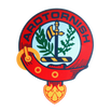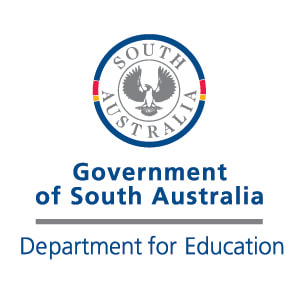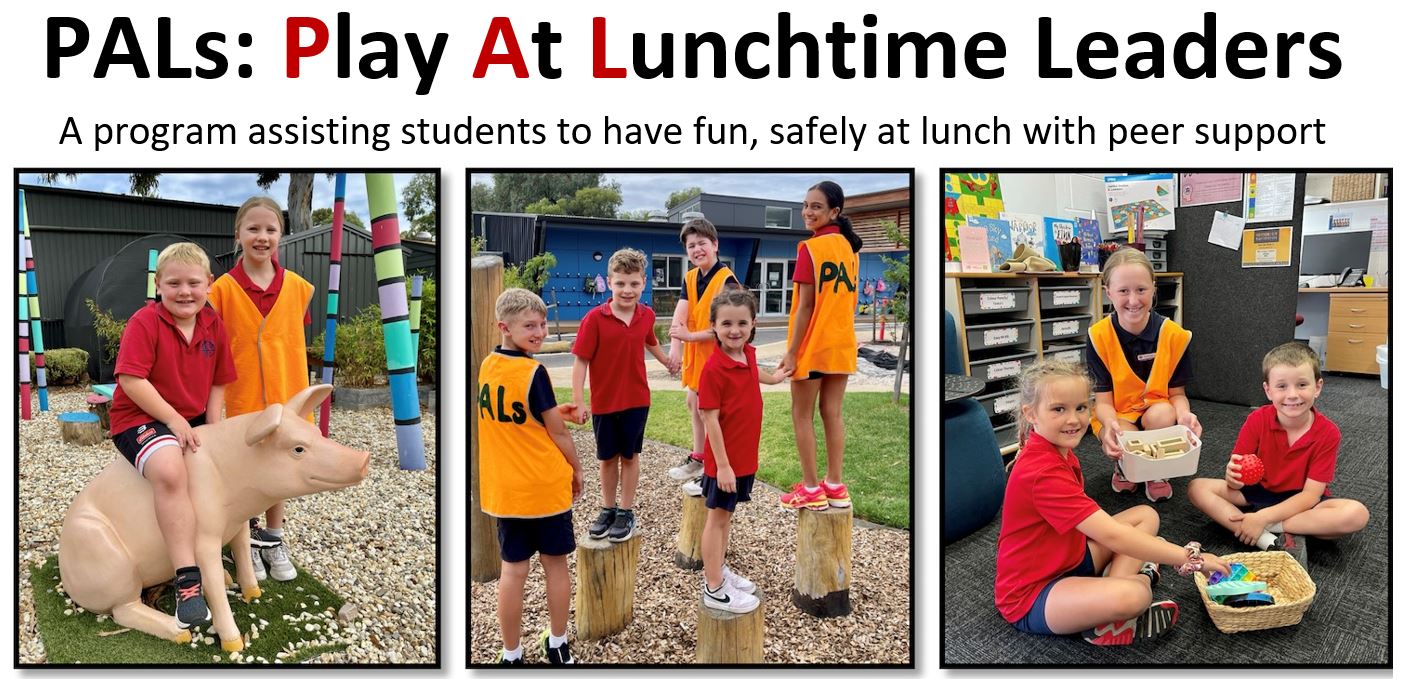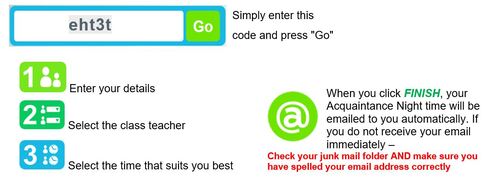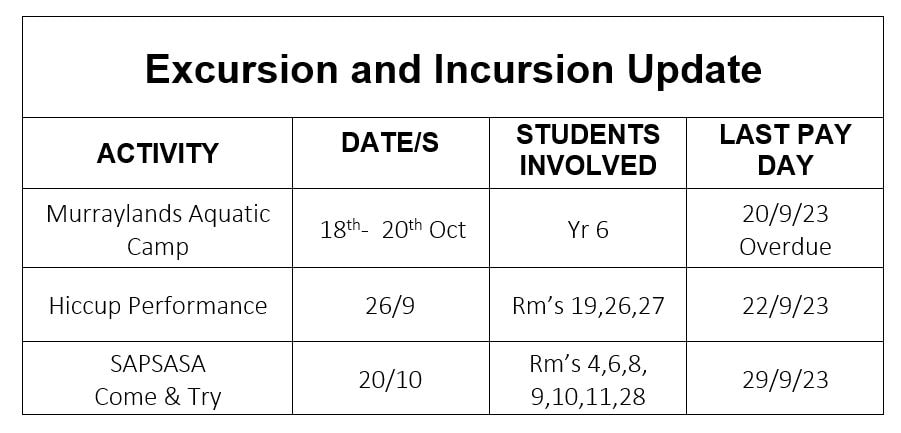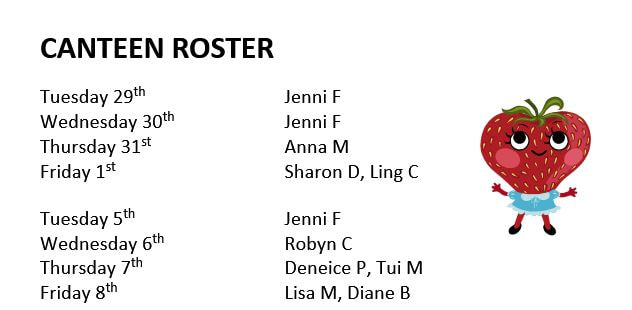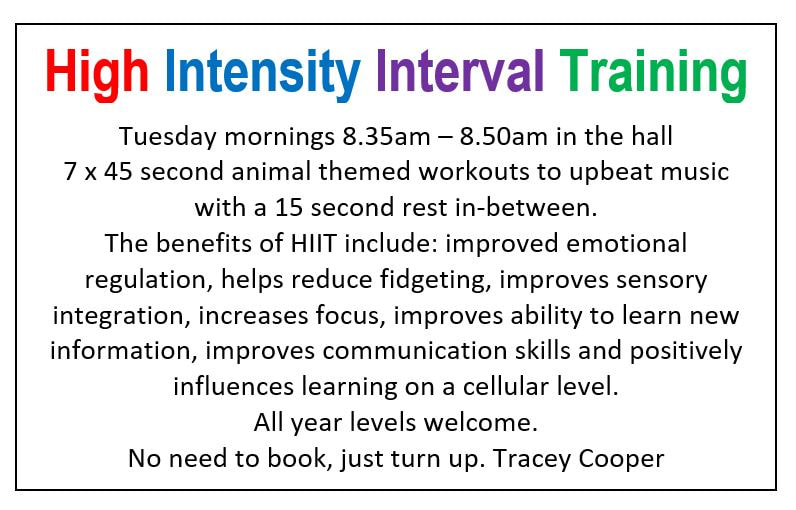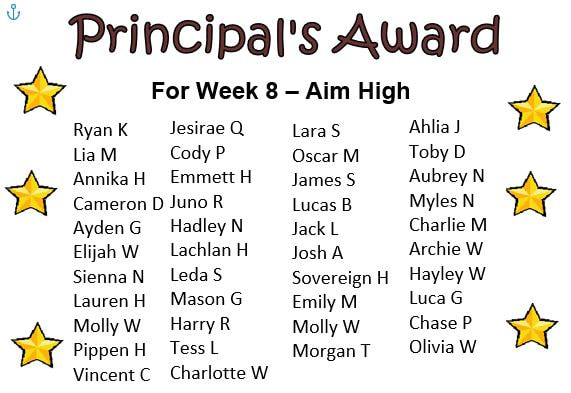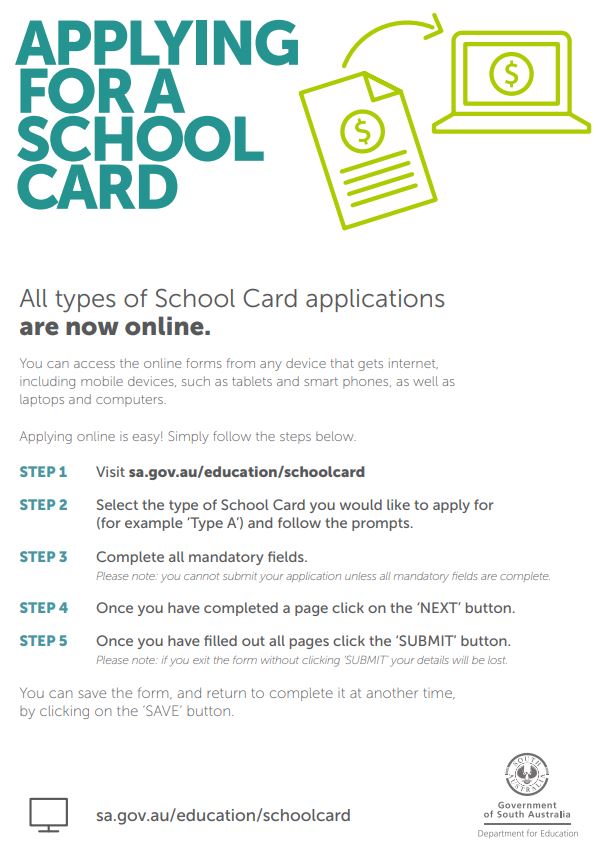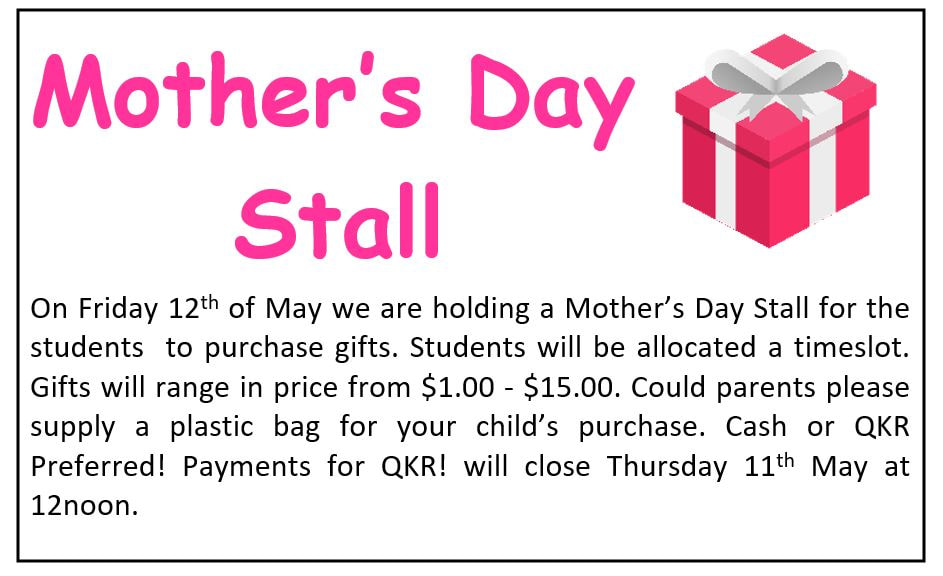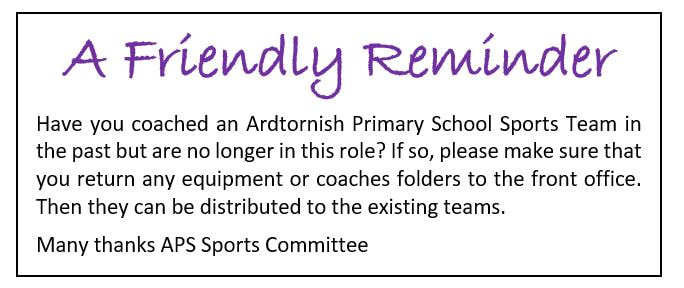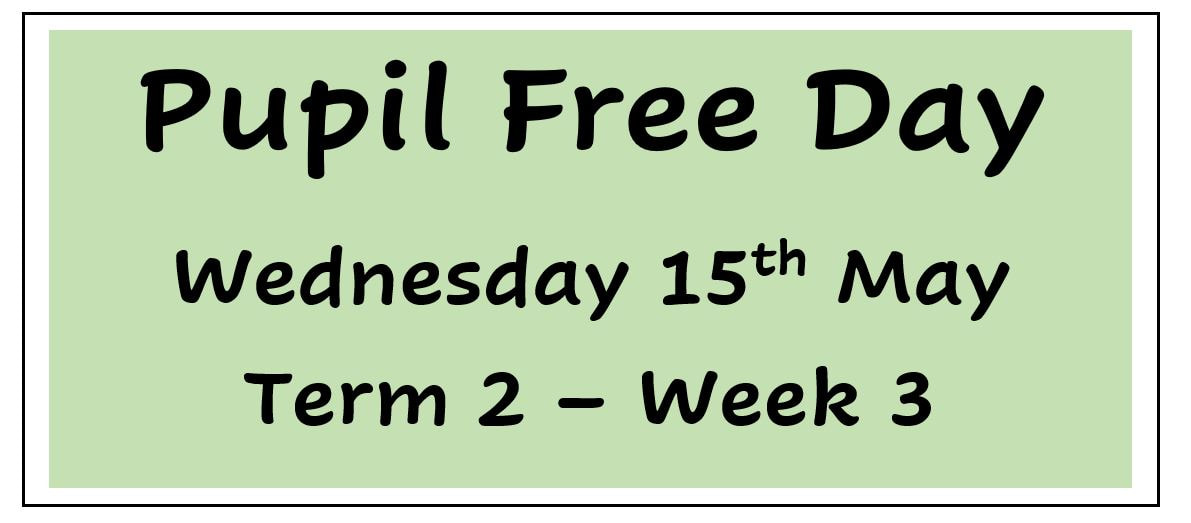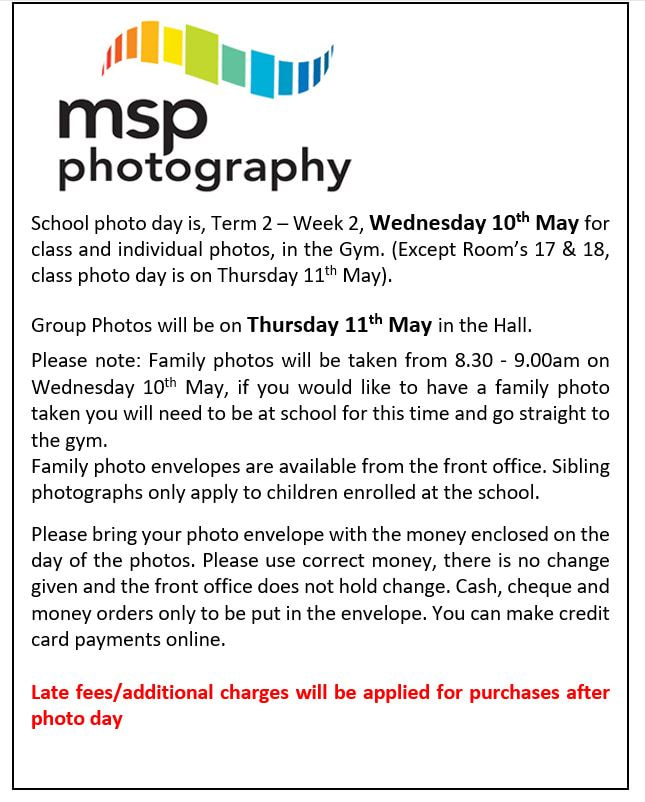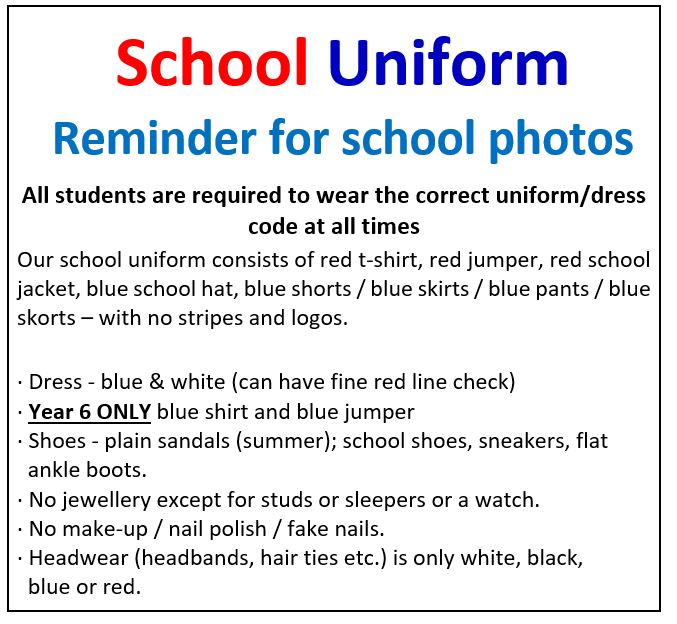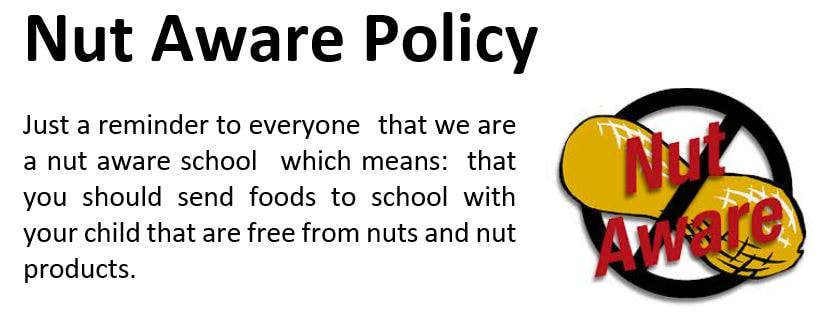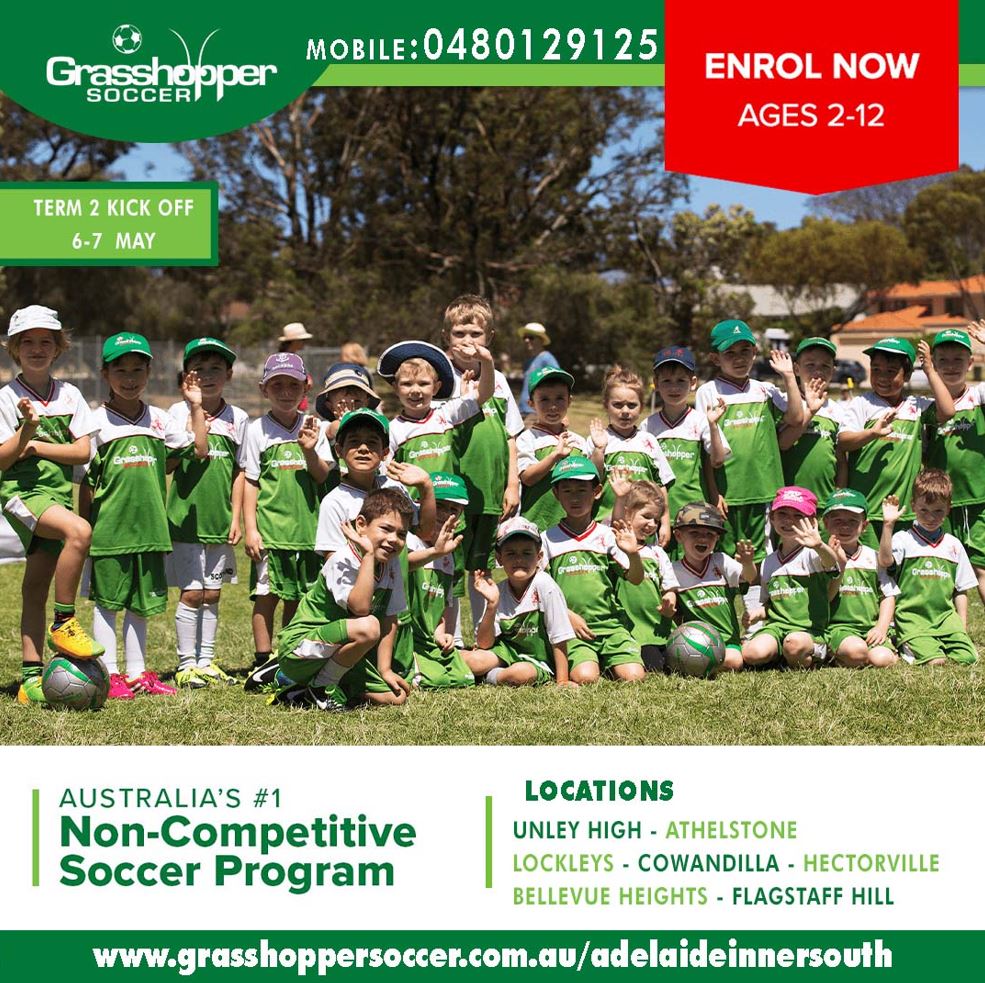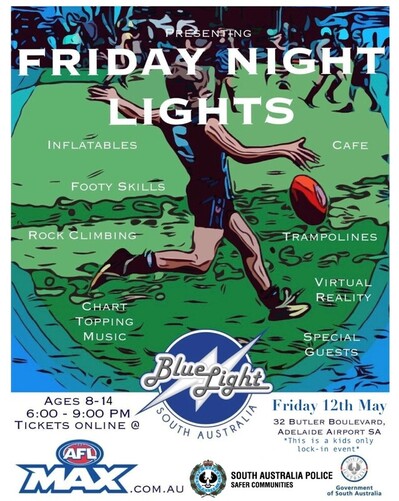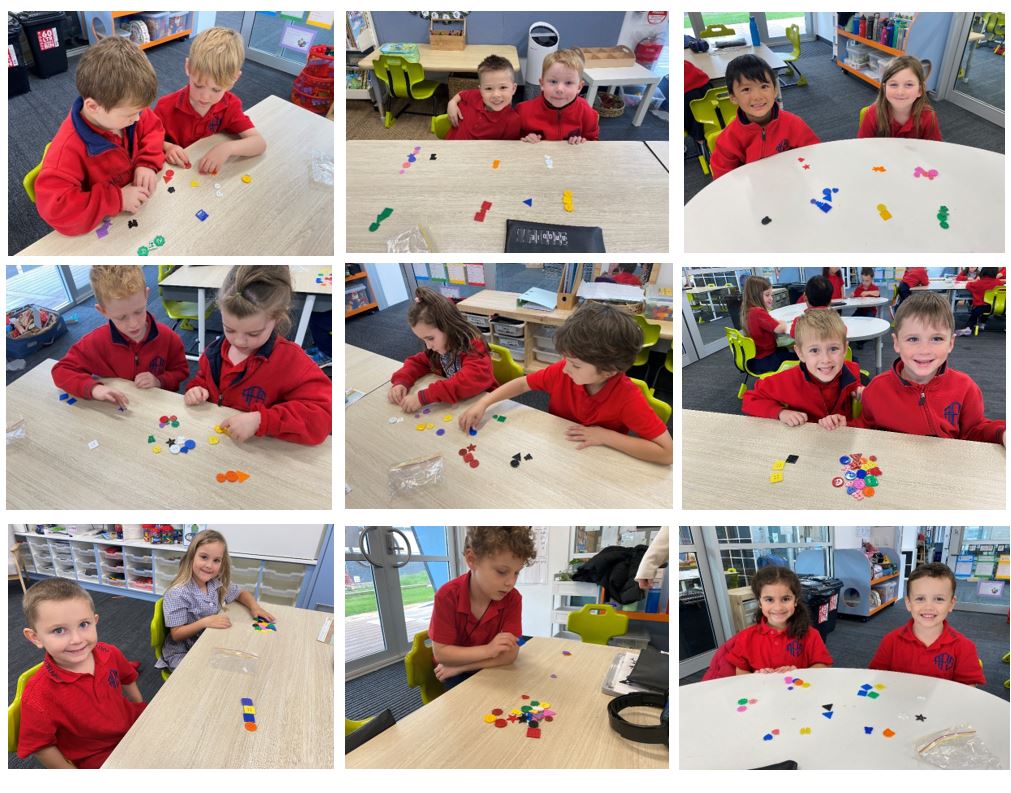In this issue
Diary Dates
May 9th - AFL Max Camp Rm’s 17/18 10th - AFL Max Camp Rm’s 17/18, School Photos Class, FACE Meeting 7pm 11th – School Photo Groups, Finance Meeting 3.15pm 12th – Cross Country 15th – Pupil Free Day, Governing Council Meeting 7pm, Volunteers Week 17th – Dream Big Excursion Rm’s 9/10/11/28 25/5 - Soccer Carnival 26/5 - Zoo Snooze Rm 29, Soccer Carnival 27th – Reconcillation Week 31/5 - Sports Portfolio Mtg 7pm June 26th – JP Swimming Week July 31st – Yrs 3-5 Swimming Week Road Crossing
Monitors Wed 10th May – Tue 16th May Mason W, Ryder W, Oliver H Wed 17th May – Tue 23rd May Matisse B, Molly W, Ella P Wed 24th May – Tue 30th May Caitlyn D, Sienna G, Alice E Please arrive by 8.25am |
Developing Every Child’s Self-regulation Skills.
|
|
Click the link - School Card Online Applications
|
TTG District Carnival Results Correction
Long Jump – Natalie S finished 4th High Jump – Natalie S finished 2nd Well Done Natalie! |
In Room 21, we have been learning all to sort collections of objects by their attributes/features.
In class, we worked in pairs to sort a collection of buttons by shape, colour, size, number of holes and if the button had straight or curved sides.
The ability to identify patterns is central to developing students mathematical skills and is a foundational skills for everyone to master. The use of manipulative materials supports students to learn in a powerful, fun and multisensory manner.
In class, we worked in pairs to sort a collection of buttons by shape, colour, size, number of holes and if the button had straight or curved sides.
The ability to identify patterns is central to developing students mathematical skills and is a foundational skills for everyone to master. The use of manipulative materials supports students to learn in a powerful, fun and multisensory manner.
